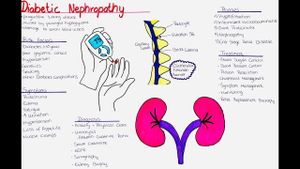Lisbon, Portugal, 5 February 2025 – Prince Rahim Al-Hussaini Aga Khan V was today named the 50th hereditary Imam (spiritual leader) of the Shia Ismaili Muslims, following the unsealing of the Will of his late father, Prince Karim Al-Hussaini Aga Khan IV, who died in Lisbon, Portugal yesterday, aged 88. Prince Rahim Aga Khan V is a direct descendant of the Prophet Muhammad (peace be upon him and his progeny) through his daughter, Hazrat Bibi Fatima, and the Prophet’s cousin and son-in-law, Hazrat Ali, the fourth Rightly Guided Caliph of Islam and the first Shia Imam.
Throughout their 1,400-year history, the Ismailis have been led by a living, hereditary Imam. The Ismailis live in over 35 countries and number approximately 12 to 15 million. Following the passing of the 49th Imam, the announcement of the new Aga Khan solidifies the continuation of this lineage, reflecting the hopes of millions who look to their Imam for guidance and support.
Prince Rahim Al-Hussaini has been officially designated as the Aga Khan V. His appointment as the new Aga Khan was revealed just one day after the death of his father. The Aga Khan is considered by his followers to be not only their religious leader but also treated akin to head of state, underscoring the dual role he plays within his community.
Various reports confirm the circumstances surrounding the late Aga Khan’s death, noting he passed away surrounded by family. His legacy includes significant contributions through the Aga Khan Development Network (AKDN), which focuses on health care, education, and rural development, boasting operations across more than 30 nations and manage annual budgets exceeding $1 billion.
The late Aga Khan IV was often recognized as a defender of Islamic culture and for bridging gaps between Muslim societies and the West. His efforts established hundreds of hospitals, educational initiatives, and economic development programs, particularly targeting the poorest populations across regions like Bangladesh, Tajikistan, and Afghanistan.
His remarkable leadership was reflected not just through his philanthropy but also through personal ventures. He garnered immense wealth and recognition, with Forbes estimating his fortune at approximately $1 billion, which he utilized for charitable causes and business operations, including breeding elite racehorses.
The new Aga Khan, Rahim Al-Hussaini, is also immersed in this philanthropic legacy. He is the eldest of four siblings and is married to Kendra Spears, with whom he has two sons. Rahim received his education in the United States and has been engaged with the AKDN for several years, serving on numerous boards focused on humanitarian work.
His commitment to environmental issues, as noted by the AKDN, aligns with the contemporary global imperative to address climate change. Reports indicate, "Prince Rahim has been particularly concerned with the AKDN's drive to protect the environment and mitigate the effects of climate change.” This dedication is expected to shape his leadership approach.
Rahim Al-Hussaini’s ascension ushers in not only continuity but potentially new initiatives aimed at addressing current challenges faced by the global Ismaili community. His actions will be closely monitored by followers and the international community as they speculate on how his tenure will differ from his predecessor, building upon the solid foundation laid by his father.
The historical transition of the Imamat, handed down through generations from the lineage of the Prophet Muhammad, demonstrates the resilience and adaptability of the Ismaili community. The funeral of the late Aga Khan is expected to occur shortly, emphasizing the communal ties experienced by the followers during this moment of mourning.
Prince Rahim Al-Hussaini, now the 50th Aga Khan, remains poised to lead millions of Ismaili followers, inheriting not only leadership but also the substantial expectations placed upon him.
The Ismaili community, which has persisted through significant historical changes, looks forward to his guidance as they navigate the interconnected challenges of modernity, identity, and faith.



